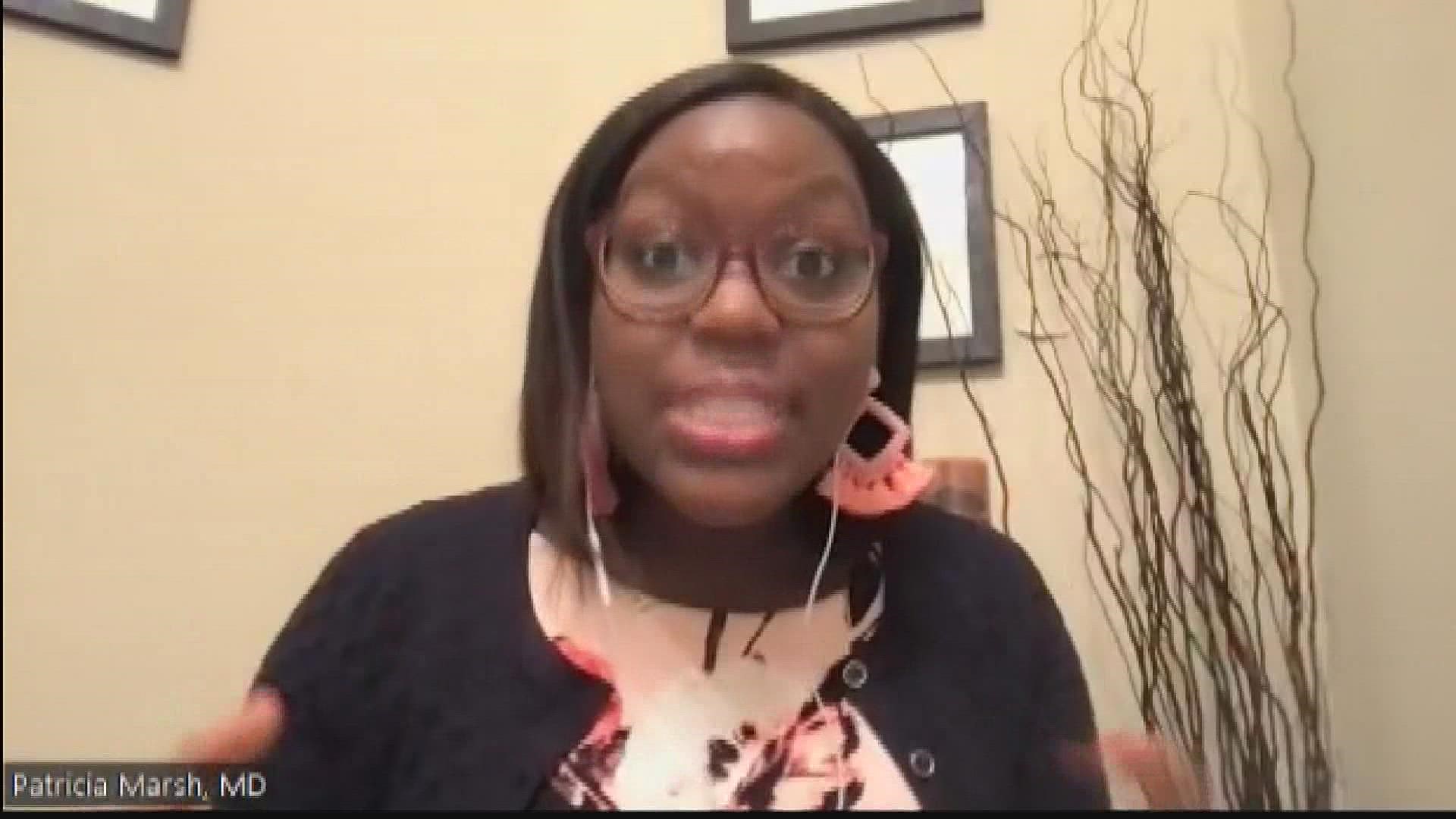ATLANTA — Five years ago, the organization Black Mamas Matter Alliance saw a need to speak out about the disparities in maternal health between Black and white women and started the Black Maternal Health Week initiative.
Last year, the White House officially recognized and proclaimed April 11-17 to be Black Maternal Health Week as a way to “renew our commitment to addressing the crisis of Black maternal mortality and morbidity across the country.”
According to the Centers for Disease Control and Prevention, Black women are three times more likely than white women to die from pregnancy or pregnancy-related causes regardless of income or education.
Dr. Patricia Kelly Marsh, MD is a testament to this because despite being a family physician and the CEO and co-founder of the telemedicine practice on AskMeYourMD.com, she has even had trouble when it comes to pregnancy.
For years, she was unaware of why she had such heavy and long menstrual cycles that would leave her feeling tired and sometimes left in the E.R. At first, doctors thought it was fibroids, but it wasn’t until after she got pregnant that they were finally able to diagnose the cause.
“It wasn't until I was about to get pregnant that I had a miscarriage and we had to do genetic counseling, and I found out that I had this anemia, alpha thalassemia anemia, and I'm like, I read about this in the books,” Dr. Marsh said.
Alpha thalassemia anemia is a blood disorder that reduces the production of red blood cells in the body, and Dr. Marsh had unknowingly inherited it from her family.
Not wanting other women to experience what she did, she is an avid educator and advocate for maternal health and understands the multiple factors that impact the disparities Black women face when it comes to Black maternal health.
The first is what she called “the elephant in the room.”
“There is blatant racism and differences of treatment in the medical world of a white woman versus a Black woman. And this is ingrained in the United States because when you go and you're looking at maternal mortality, it's not the same anywhere else," she said.
Many racial biases exist within the medical field and can range from access to healthcare and nutrition to housing affordability, and they all contribute to the too-often poor treatment Black women face when they go to the doctor’s office.
Despite this fact, the issue is not one-sided, and Dr. Marsh believes that both patients and physicians can do more to combat Black maternal mortality, starting with focusing on the mother’s overall health before and after pregnancy.
"The top thing for us as Black women to do, get your health in order. You have to get your health in order even before having children or thinking about having children,” Dr. Marsh said. “Black women's health is not at its optimized level. Like we have higher diabetes incidences. We have higher high blood pressure incidences. We have way higher obesity and morbid obesity and overweight. Those are three different diagnoses that are medical problems, and it's kind of ingrained in our culture.”
Since Black women are predisposed to various medical diagnoses, Dr. Marsh suggests that they prioritize visits to the doctor and adopt a healthier lifestyle before getting pregnant to help mitigate some of the issues that naturally come along when the body changes during pregnancy.
Alternatively, she believes healthcare providers also need to make necessary changes to standardize practices across the country and make sure that patients, regardless of race, receive the same treatment.
“We have to train our doctors in the United States how to literally just do your job regardless of what the patient looks like. Your assessment should be the same. Your treatment should be the same. And it's very hard to do that when you have practiced medicine for years with this ignorance of your own bias,” Dr. Marsh said.
Fortunately, since the White House announced its initiative to tackle the issues of Black maternal health, Dr. Marsh said she has seen action in the way health professionals are being retaught skills and practices so that they can be unbiased.
However, the work is not done, and in the meantime, she has tips for Black women who are trying to navigate a medical world that might not always see them as a priority, and that starts with talking to those within your community.
“Talking to other Black females, talking to your friends because somebody has had some experience where a doctor cared for them, somebody had that transformational medical care experience where they felt heard,” Dr. Marsh said.
She also said to find physicians who look like you and can better understand your experiences. And even if no one else listens, advocate for yourself, and don’t take no for an answer.
“As a Black female, if you feel unheard, that's when you have to come to an ally, go to somebody that looks like you and that can hear you. And if you don't have that experience, even with someone that looks like you, you have to keep searching and advocate for yourself. Don't stop until you have knowledge of why something is happening in your body," she said.

